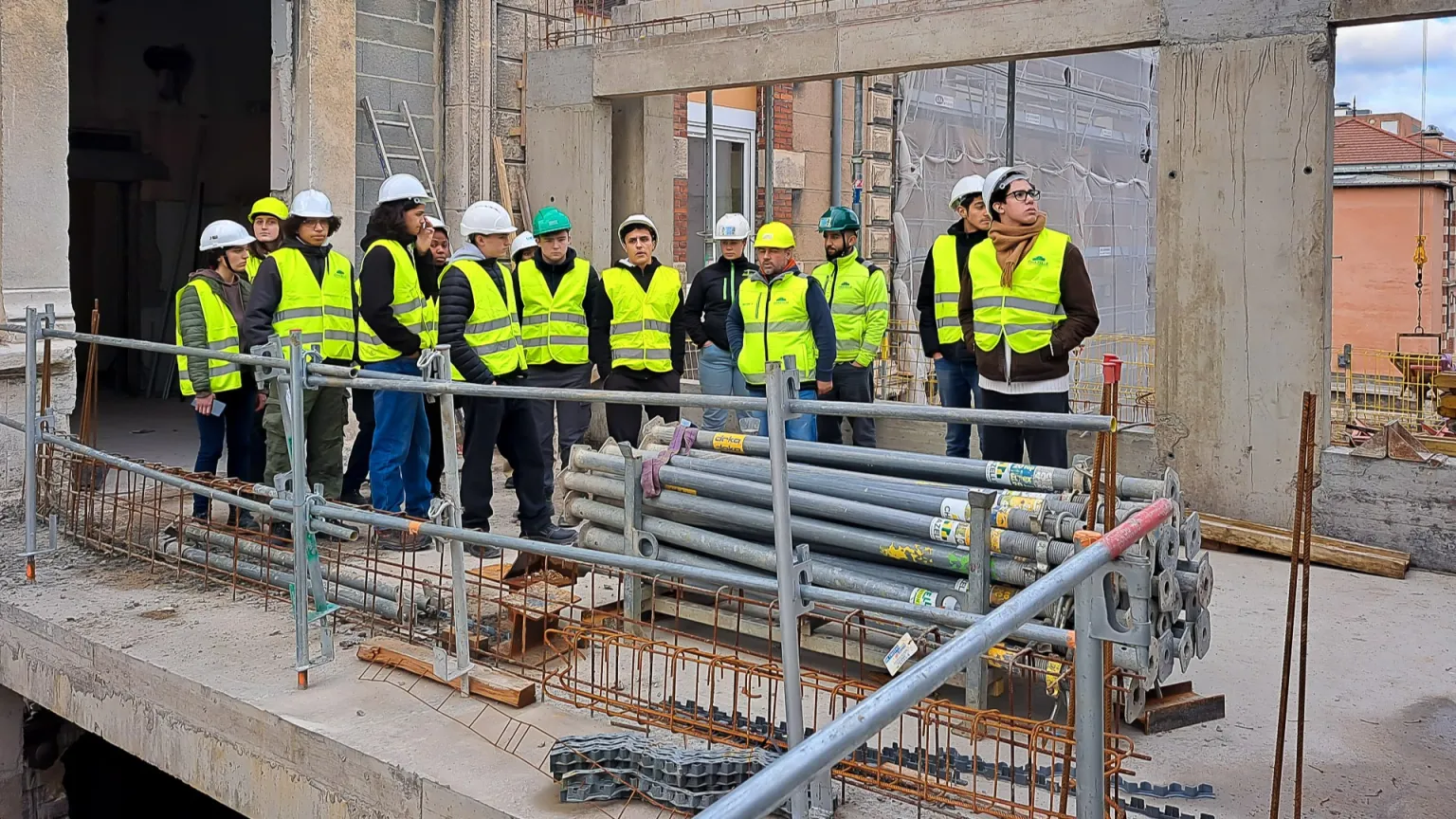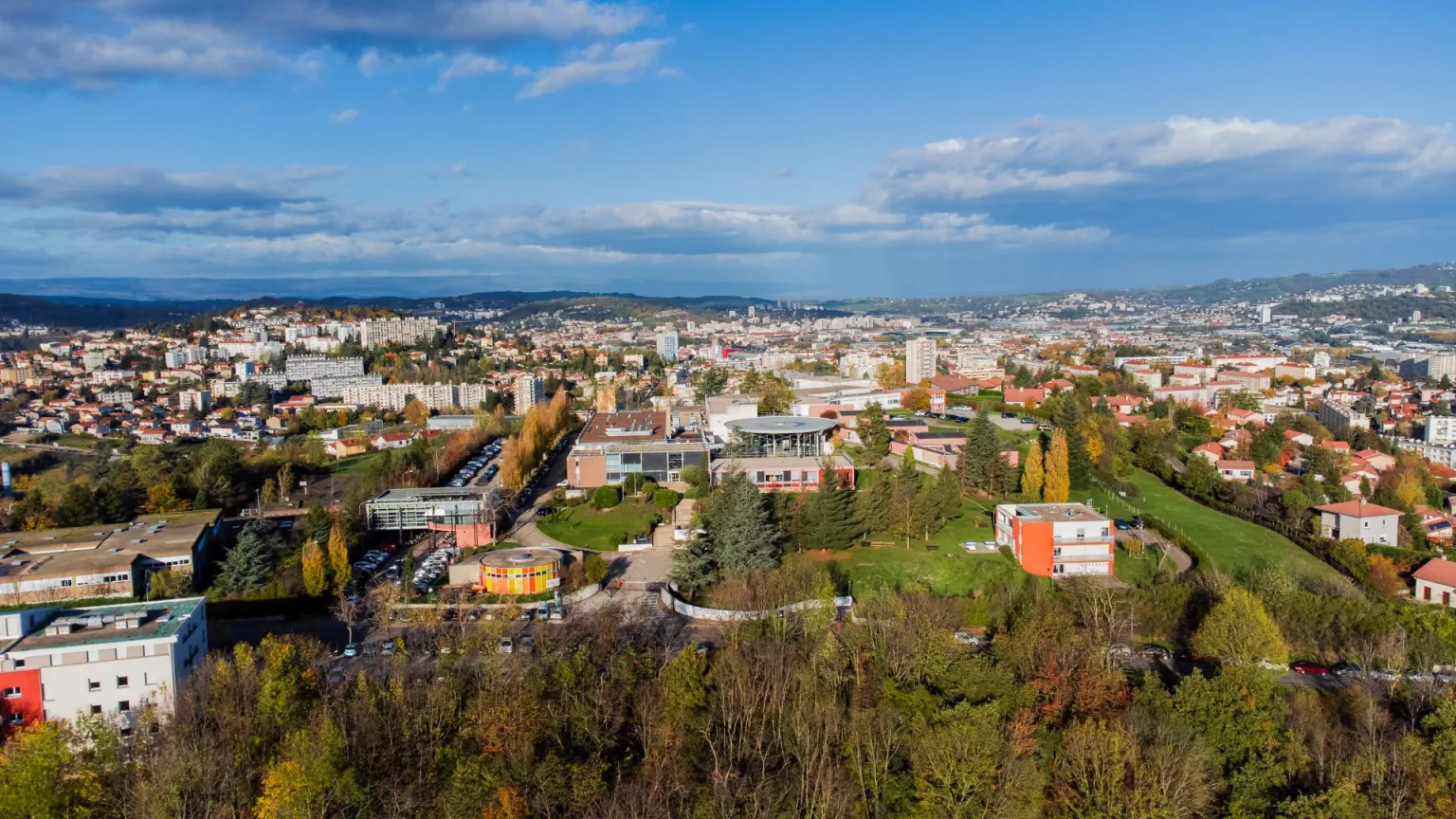Objectives
Centrale Lyon offers a Bachelor Mutations Technologiques et Industrielles - Civil Engineering and Environment pathwayto all those who want to contribute to a sustainable future by transforming construction and renovation practices for buildings and public works structures.
To become an assistant engineer, students will be trained to:
- Conduct civil engineering projects: from project costing to work planning to project management in liaison with customers and suppliers
- Contribute to the dimensioning of buildings and structures by mobilizing knowledge of structural and soil mechanics as well as the resistance of materials, integrating current standards
- Participate in setting up a functional site organization and monitor work progress indicators
- Assume middle management of a committed team, ethical and responsible
The Bachelor of Civil and Environmental Engineering is a program co-constructed as part of the Collège d'Ingénierie Lyon-Saint-Étienne.
Program
Education
- Fundamental sciences: mathematics, physics, chemistry and computer science
- Economics, Management, Law, Management and English
- Science and technology: mechanics, strength of materials and design rules
- Structural and envelope eco-design: steel construction, reinforced concrete, wood and building comfort
- Geology, Civil Engineering materials, soil remediation and geotechnics
- Organization, methods and technology of buildings and public works
Alternance
Learning takes place over three years: the first under student status, followed by two years under apprentice status. Students benefit from individualized accompaniment to find an apprenticeship contract in line with their career plans, and to succeed in obtaining their diploma.

Saint-Étienne campus
The Bachelor Mutations Technologiques et Industrielles - Génie Civil et Environnement is taught on Centrale Lyon's Saint-Étienne campus, located at 58 rue Jean Parot. This campus, integrated into the heart of a dynamic industrial and scientific ecosystem, offers an environment propitious for learning and projects in connection with local companies.

Diploma and certification
This course awards a national bachelor's degree - controlled by the State.


Admission requirements and application
Requirements
- General baccalaureate or STI2D
- Reorientation after BAC +1/+2
Application
Applications are considered on the basis of a dossier, transmitted via Parcoursup.
Tuition fees
- Scholarship students are totally exempt from registration fees.
- For other students, registration fees are only due in the first year. Their amount is calculated on the basis of the reference tax income per unit of the household to which the student is attached (calculation: reference tax income ÷ number of units).
- In the second and third years, these fees are paid in full by the company as part of the work-study program.
| Reference tax income 2025 ÷ Number of household units in 2025 | Rate |
|---|---|
| Lower than 12,000 | €0 |
| Between 12,001 and 14,000 | €222 |
| Between 14,001 and 16,000 | €629 |
| Between 16,001 and 17,500 | €1,155 |
| Between 17,501 and 20,000 | €1,778 |
| Between 20,001 and 23,000 | €2,485 |
| Between 23 001 and 27,000 | 3,266 € |
| Between 27,001 and 33,000 | 4,116 € |
| Between 33,001 and 39,000 | 5,028 € |
| Overabove 39,001 | €6,000 |
Other specialties
The "Mutations Technologiques et Industrielles" Bachelor's degree is available in several tracks. The Civil and Environmental Engineering specialization is led by Centrale Lyon, while three other specializations are offered by INSA Lyon:
Oyonnax campus
This specialization trains professionals capable of designing and producing polymer and composite materials in an eco-responsible way, thanks to training that combines technical skills with respect for environmental standards.
Campus Lyon Tech-La Doua
This specialization trains professionals capable of designing, optimizing and managing eco-responsible thermal and energy systems thanks to solid theoretical teaching and concrete projects, in partnership with leading companies in the sector.
Campus Lyon Tech-La Doua
This specialization trains professionals capable of designing, managing and adapting electrical infrastructure systems while contributing to the decarbonization of industries thanks to an interdisciplinary training program integrating civil engineering, electrical engineering, and infrastructure digitalization.
